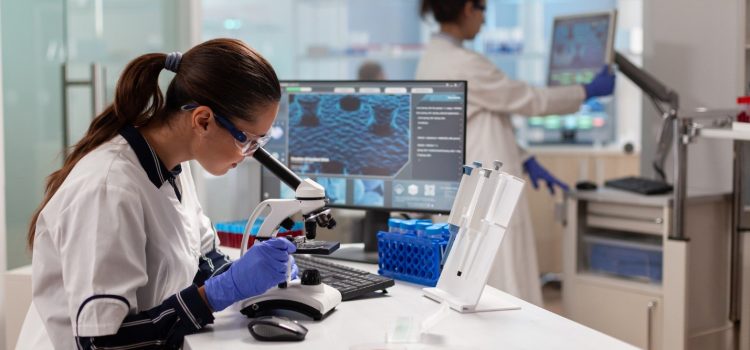
As we step into 2024, the field of cardiology continues to evolve at an unprecedented pace, driven by technological advancements, innovative research, and a deeper understanding of cardiovascular health. This year promises to be transformative, with several emerging trends poised to significantly impact patient care, diagnosis, and treatment. Here, we explore the top emerging trends in cardiology for 2024.
Artificial Intelligence and Machine Learning
Artificial Intelligence (AI) and Machine Learning (ML) are revolutionizing cardiology. These technologies are being integrated into various aspects of cardiovascular care, from diagnostics to personalized treatment plans. AI algorithms can now analyze vast amounts of data from electronic health records, imaging studies, and wearable devices to identify patterns and predict outcomes with remarkable accuracy.
For example, AI-driven tools can assist in early detection of heart diseases by analyzing electrocardiograms (ECGs) and echocardiograms, often identifying abnormalities that might be missed by the human eye. Moreover, machine learning models are being developed to predict patient-specific responses to treatments, allowing for more personalized and effective care.
Wearable Technology and Remote Monitoring
Wearable technology is becoming increasingly sophisticated, offering real-time monitoring of vital signs and other health metrics. Devices such as smartwatches and fitness trackers now come equipped with advanced sensors capable of tracking heart rate, blood pressure, oxygen levels, and even electrocardiogram (ECG) readings.
In 2024, the trend towards remote monitoring is expected to grow, enabling continuous patient monitoring outside of clinical settings. This is particularly beneficial for patients with chronic conditions like heart failure, as it allows for early detection of potential issues and timely intervention. Remote monitoring also reduces the need for frequent hospital visits, improving patient convenience and reducing healthcare costs.
Telemedicine and Virtual Care
The COVID-19 pandemic accelerated the adoption of telemedicine, and its benefits have ensured its continued use in cardiology. Telemedicine platforms enable cardiologists to conduct virtual consultations, monitor patients remotely, and provide timely advice, all from the comfort of the patient’s home.
In 2024, telemedicine is expected to become even more integrated into routine cardiology practice. Advances in telehealth technology, including high-resolution video conferencing and secure data transmission, are making virtual care more effective and accessible. This trend is particularly advantageous for patients in rural or underserved areas, who may have limited access to specialized cardiac care.
Precision Medicine and Genomics
Precision medicine, which tailors treatment to individual genetic profiles, is gaining traction in cardiology. Advances in genomics and molecular biology are enabling a deeper understanding of the genetic factors that contribute to cardiovascular diseases.
In 2024, we can expect to see more widespread use of genetic testing to identify individuals at high risk for conditions like coronary artery disease and cardiomyopathies. This information can guide personalized prevention strategies and treatment plans. Additionally, pharmacogenomics—the study of how genes affect a person’s response to drugs—will play a crucial role in optimizing medication regimens for cardiovascular patients, minimizing adverse effects and maximizing therapeutic efficacy.
Regenerative Medicine and Stem Cell Therapy
Regenerative medicine, particularly stem cell therapy, holds great promise for repairing damaged heart tissue and improving outcomes for patients with heart failure and other cardiac conditions. Research in this area has made significant strides, and 2024 is likely to witness further advancements.
Stem cell-based therapies aim to regenerate damaged myocardium, potentially reversing heart damage and improving cardiac function. Clinical trials are ongoing to evaluate the safety and efficacy of these treatments, and early results are promising. As this field continues to evolve, it could offer new hope for patients with limited treatment options.
Advanced Imaging Techniques
Imaging technology is a cornerstone of cardiology, and recent advancements are enhancing diagnostic accuracy and patient care. In 2024, several cutting-edge imaging techniques are expected to become more widely adopted.
One such technique is 3D echocardiography, which provides detailed, real-time images of the heart’s structure and function. This allows for more precise assessment of conditions like valvular heart disease and congenital heart defects. Additionally, cardiac magnetic resonance imaging (MRI) and computed tomography (CT) are being refined to offer higher resolution images with reduced radiation exposure.
These advanced imaging modalities enable earlier and more accurate diagnosis, better treatment planning, and improved patient outcomes.

Innovative Pharmacotherapies
The development of new pharmacotherapies is a key trend in cardiology for 2024. Researchers are exploring novel drug classes and therapeutic agents to address various cardiovascular conditions more effectively.
One area of focus is the development of drugs that target specific molecular pathways involved in heart disease. For instance, PCSK9 inhibitors, which lower LDL cholesterol levels, have shown promise in reducing the risk of cardiovascular events. Additionally, new anticoagulants and antiplatelet agents are being investigated to prevent clot formation without increasing the risk of bleeding.
These innovative pharmacotherapies have the potential to provide more effective and safer treatment options for patients with cardiovascular diseases.
Lifestyle Medicine and Preventive Cardiology
Preventive cardiology is gaining prominence as healthcare providers recognize the importance of addressing lifestyle factors in cardiovascular health. Lifestyle medicine focuses on interventions such as diet, exercise, stress management, and smoking cessation to prevent and manage heart disease.
In 2024, there is likely to be a greater emphasis on personalized lifestyle interventions. Wearable devices and mobile apps can track physical activity, dietary habits, and other lifestyle metrics, providing patients and healthcare providers with valuable insights. Additionally, digital health platforms can offer tailored recommendations and support, helping individuals make sustainable lifestyle changes.
Preventive cardiology not only reduces the risk of cardiovascular events but also improves overall health and quality of life.
Integration of Big Data and Analytics
The integration of big data and analytics is transforming cardiology by enabling more informed decision-making and personalized care. The vast amount of data generated from electronic health records, wearable devices, and clinical studies can be harnessed to identify trends, predict outcomes, and optimize treatment strategies.
In 2024, we can expect to see more sophisticated data analytics tools being used in cardiology. These tools can aggregate and analyze data from multiple sources, providing a comprehensive view of a patient’s health. Predictive analytics can identify patients at high risk for adverse events, allowing for proactive interventions. Moreover, data-driven insights can inform clinical guidelines and best practices, improving the overall standard of care.
Conclusion
The field of cardiology is on the cusp of significant transformation in 2024, with emerging trends poised to enhance patient care, diagnosis, and treatment. From the integration of AI and wearable technology to advancements in precision medicine and regenerative therapies, these innovations hold the promise of improving cardiovascular health outcomes and quality of life for patients worldwide.
As these trends continue to evolve, it is essential for healthcare providers to stay informed and adapt to the changing landscape of cardiology. By embracing these advancements, we can look forward to a future where cardiovascular diseases are detected earlier, treated more effectively, and ultimately, prevented more successfully.










